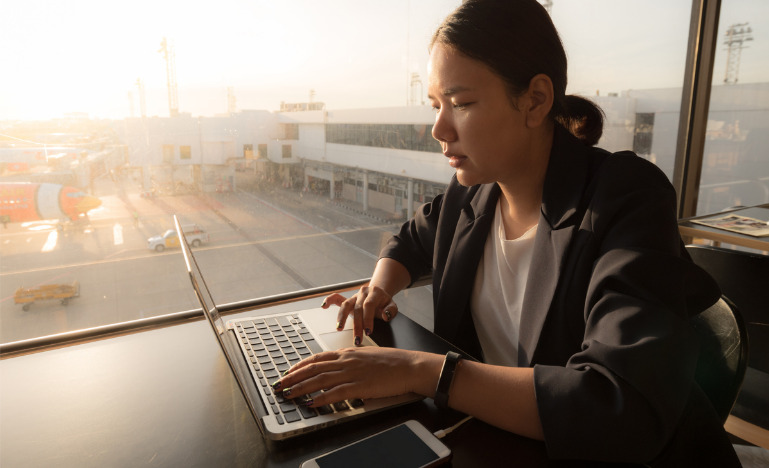Best to remain suspicious
U.S. ruling on unconstitutional border searches of digital devices is not a licence for Canadian lawyers to let their guard down.

A recent U.S. ruling that border agents can't conduct "suspicionless" searches on electronic devices is unlikely to make a difference for Canadian lawyers mindful of the precautions they need to take when traveling.
"It may mean fewer lawyers will be required to submit to a U.S. search of their devices," says Craig Yamashiro, Crown Counsel in New Westminster, BC, and president of the CBA's ethics and professional responsibility section. "However, given the importance of protecting solicitor-client privilege, lawyers crossing into the U.S. will still have to take adequate precautions in case they are targeted for a search."
Border officials need justifiable reasons to search a person device, U.S. district judge Denise Casper ruled earlier this month. If there is no reasonable suspicion of a crime, the search will violate the Fourth Amendment, which protects against warrantless searches and seizures.
Cyndee Todgham Cherniak, founding lawyer of LexSage in Toronto, says that the Boston decision is unlikely to be significant in the broader scheme.
"My expectation is that this will have no impact," says Todgham Cherniak, who is also the past chair of the CBA Commodity Tax, Customs and Trade Section. "The Boston court is just one court, and there are numerous federal courts around the United States, and until this gets to the United States Supreme Court, the U.S. Customs are going to do what they want to do."
The CBA's Privilege at the Border Toolkit, prepared by the CBA's Ethics Committee, states that U.S. customs and border protection officials have the legal authority to search lawyers and their property when they seek entry into the United States. They don't need to have suspicion or reasonable grounds to do so. Their broad powers allow them to ask lawyers for passwords to devices, and to look at whatever is on them, copy files, and analyze the data.
"Officials … may only look at information that is on the device … [T]hey may not use the device to examine remotely stored information," the toolkit advises.
Todgham Cherniak says that other courts have stated that these searches don't violate the Fourth Amendment.
"This particular court took a more liberal view of the constitutional right, so you've got conflicting case law in the U.S., plus you still have officers who are going to take the position that [their] job is to keep the United States safe, and we can look through anyone's device," says Todgham Cherniak. "The real question is, can they look through someone's device looking for criminal activity or a violation of customs law, or a violation of a law that would lead to a fine."
Todgham Cherniak says that she suspects that U.S. border officers will continue to search devices and will treat this court ruling as pertaining to isolated cases. She adds that lawyers should continue to exercise caution when traveling because customs officials in other jurisdictions may want to look at their laptops, tablets or smartphones, which means not having client information that can be viewed.
Lawyers crossing the border with privileged information risk finding themselves in the difficult spot of either being viewed with suspicion if they don't hand over their devices, or risk breaching their duty of confidentiality if they do.
"When I travel, I travel with a clean laptop," says Todgham Cherniak. "I have a laptop that is just for travel, and I only have the documents that I need for that travel, and they're in a folder marked 'solicitor-client privilege.' I don't even have my emails on that computer – I go in through webmail."
Returning to Canada is also an issue when it comes to device searches.
"When the lawyer returns to Canada, they are still subject to a search by the CBSA which is not bound by the U.S. decision," says Yamashiro.
Todgham Cherniak says it's essential that lawyers have their devices scrubbed.
"CBSA regularly searches peoples' computers and mobile devices," she says. Even though they are supposed to fill out paperwork every time they search a device, including what indications led them to the search, they rarely do in practice.
In December 2017, a bill relating to pre-clearance by U.S. border officials in Canadian airports was passed into law, meaning that interviews and examinations can be done ahead of a traveler's departure to the United States.
"A U.S. border officer may want to search your device while you're still technically on Canadian soil," says Todgham Cherniak. "You're supposed to be able to withdraw your request to be admitted to the United States, and you should be able to leave with your laptop or your smartphone from the airport on Canadian soil, and they have to follow Canadian laws while on Canadian soil."


